Alumni in the Spotlight: Lawrence Till
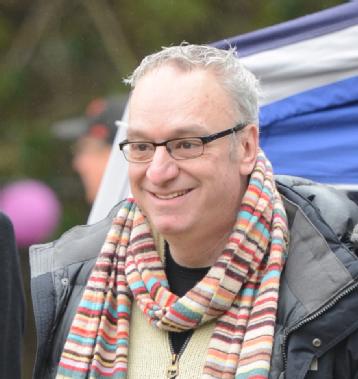 Name: Lawrence Till
Name: Lawrence Till
Course: BA English and Theatre Studies
Graduated: 1985
Job Title/ Company: Director and Producer
Biography: Lawrence Till is a BAFTA and Royal Television Society nominated Producer & Director currently Producing Silent Witness for BBC Studios.
With a background in award winning theatre, including over fifteen years experience as an Artistic Director directing plays by new and established writers at the Bolton Octagon Theatre (1992-99) and Watford Palace Theatre (1999-2006).
On leaving the University of Warwick in 1986, he was Youth Theatre Director and later Associate Director at Manchester’s Contact Theatre. He then moved to the Crucible Theatre in Sheffield. Lawrence’s work as a Director has been toured across the country and international work includes directing The Mysteries in Caceres Spain, Black Comedy for the National Theatre of Turkey and Eclipse at the Sydney Opera House for the National Theatre.
Lawrence Produced and Directed Shameless for five years for C4/Company Pictures and Directed six episodes of Mr Selfridge for ITV Studios. He Produced Harlots for Hulu/Monumental and The Frankenstein Chronicles for ITV/Netflix/Rainmark Films.
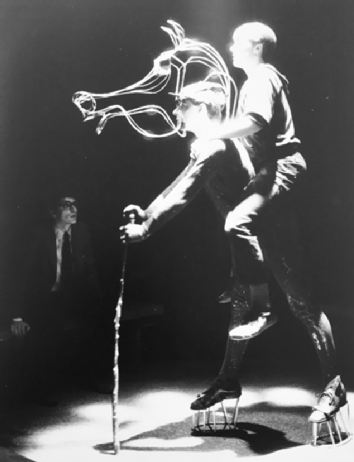 What was it that attracted you to study Theatre at Warwick?
What was it that attracted you to study Theatre at Warwick?
I came to Warwick in 1982 to study BA English and Theatre Studies. I had not studied Theatre at school but had a strong desire to participate in stories shared with others. I performed in an annual school play and was a member of a local amateur dramatics company.
I took the train from home in Eastleigh in Hampshire and was delivered by taxi to the door of the Humanities building. I had an hour's interview with Tony Howard in the English Department and we discussed plays I had seen and read and it felt like the first adult conversation I'd had about art. I didn’t think I had an opinion worth listening to, rather genuflecting to those of older and wiser teachers, critics and practitioners.
I walked around the campus. It was considerably smaller then, but it was still overwhelming. My head was exploding with ideas. I had so much to learn. This would be my first independent living. I entered the Social Sciences Building (near the Chaplaincy). I thought ‘this must be the Arts Centre’. You see, for me Arts Centres were often converted buildings that took small touring productions for one or two nights. Theatres and Opera Houses were bigger and grander places. The Arts Centre was not the magnificent building it has grown into now. I didn’t look in any of the rooms. I presumed they were studio theatres and offices. I had so much to learn. I would learn to be more inquisitive and more daring.
I didn’t get a place that October as I had been too readily distracted by performing that I failed to get the necessary ‘A’ Level grades for the course (only a B and a C). I was delighted that it was deferred and I could attend a year later. It was to change my life. I had interviews in other places but Warwick felt like the right fit. I had felt valued. I felt comfort.
What was it like studying Theatre and Performance here?
It was the greatest opportunity to risk and fail. I found people as passionate and obsessive as I was. I was shaped and listened to, given a platform and realised that I was becoming the person I wanted to be.
The tutors were kind, generous with their knowledge and understanding and my development felt like a bespoke handmade suit. Something valuable made just for me.
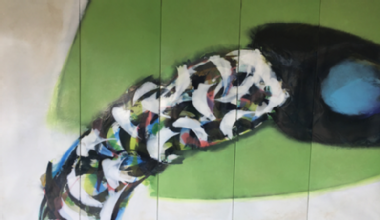
What do you remember about your first year living on campus?
I was lucky enough to have an old Ford Escort (WOW 809J) and in late Autumn 1982 I drove to campus with a car jammed with belongings: theatre posters, an electric typewriter, a small black and white TV and a roof rack with a set of three blue leatherette suitcases containing all my clothes. It rained for the entire 125 mile journey and I had to stop to bail out the footwells of the rusty car.
I arrived on campus and was allocated my Rootes room and collected a maintenance cheque. I unloaded my car. I opened my suitcases. All of my clothes were now sodden and dyed blue. I think I laughed.
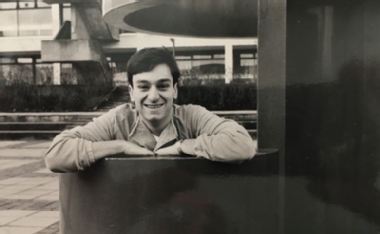 Suddenly, I was daunted again. Would I fit in? I would be the first person in my family to attend a University. Would anyone like me? Would I be any good? I could only open my eyes and my heart to the possibilities.
Suddenly, I was daunted again. Would I fit in? I would be the first person in my family to attend a University. Would anyone like me? Would I be any good? I could only open my eyes and my heart to the possibilities.
I loved (and still love) the Warwick Art Collection. They remain useful signposts to my time at Warwick. Stefan Knapp’s glorious enamel Green Painting used to be sited in Rootes Reception, which now I think is a Prêt à Manger. It was the first thing I saw. 3B Series 1 by Bernard Scottlan is one of my favourite public art pieces in the world!
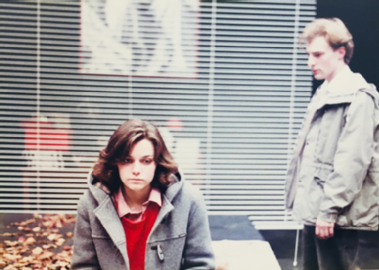 What extracurricular experiences did you have while you were at Warwick?
What extracurricular experiences did you have while you were at Warwick?
My BA English and Theatre Studies course was academic but thanks to the University Drama Societies I was able to articulate my performance enthusiasm. I thought (like many) that I wanted to be an actor. I acted in several shows in my first year Twelfth Night, The Suicide etc. In subsequent years I only directed plays, including Equus, Ashes and Peer Gynt (Ibsen/Rudkin).
In my final year I directed David Edgar’s reworking of Romeo and Juliet, Death Story at the Belgrade Theatre's Studio in Coventry. It was March 1985 and I would be graduating in a few months. This felt like a transition I could be proud of. It opened in the same week that I was rejected for Director Training at Bristol Old Vic Theatre School.
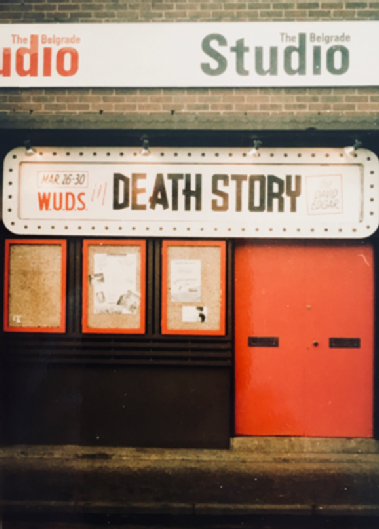 How important was Warwick Arts Centre to you?
How important was Warwick Arts Centre to you?
At the Freshers Fair, as well as joining all the magnificent Clubs and Societies, you could buy a season ticket for work visiting the Arts Centre. I think it was mostly for studio shows for the first five weeks or so. An incentive (if any was required) to get students into the Arts Centre habit. I would see something every week for three years.
I quickly became acquainted with the staff and I explained my marketing experience and I was soon employed stuffing envelopes when mailings were required. This also meant that I saw everything for almost the entire three years. Having worked as an usher at the Nuffield Theatre in Southampton from the age of 15, there is nothing to compare to seeing two performances on a matinee day and witness the choices that actors and audiences take. Seeing the same production eight or so times in the space of a month tells you a lot about how theatre is made and evolves.
It was the venue for performances that I directed. It was as strong and valuable a resource as the Library or a seminar or lecture. And I was forced to risk an opinion.
I had a car. As important was the RSC in Stratford and the Belgrade Theatre in Coventry. I saw Kenneth Branagh as Henry V at least ten times. Fewer, but equally startling Anthony Sher as Richard III and Roger Rees as Hamlet. Equally, The Other Place offered brilliantly intimate storytelling.
What is your fondest memory from your time at Warwick?
On the opening night of Equus at the Arts Centre in November 1983, I realised that I was a Director and there should be no distraction from this ambition. My body was finally wearing the suit being fashioned for me. I had designed it. It didn’t fit perfectly. That would take some time.
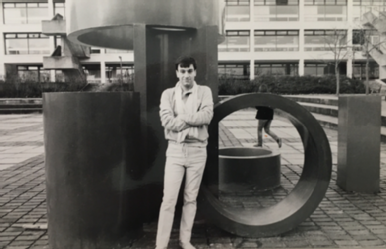 What advice would you give to anyone thinking about studying Theatre and Performance Studies at Warwick today?
What advice would you give to anyone thinking about studying Theatre and Performance Studies at Warwick today?
A degree from one of the top Universities in the world does matter.
Warwick's campus is a pleasant place which cares for our well being as well as our education. The University has over 900 artworks on display. Mark Titchner’s glorious oak and metal sculpture Everything Is Real, There Is No Audience is sited outside the Butterworth Hall.
Warwick is more than a course for learning. It is a course for life. It enables you to understand and articulate who you are as well as what you know.
There is nothing to be afraid of. You will make mistakes. But let go and enjoy the ride. Persist. No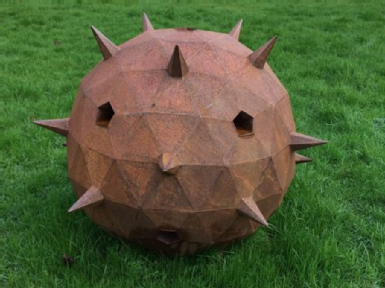 matter how tough it gets. Be fearless. Who knows what might happen. The worst it can be is a disaster.
matter how tough it gets. Be fearless. Who knows what might happen. The worst it can be is a disaster.
If you make mistakes, it means you’re out there risking something, and making the world more interesting for your having existed. Take these risks. Have the confidence to fail. You might just find the opportunity you were seeking.
‘Everything Is real, There Is No Audience’.
We’re all in this together.
I gifted a sculpture to the University Art Collection. Go seek it out. It’s called Pollen Bomb by Joanne Risley.
